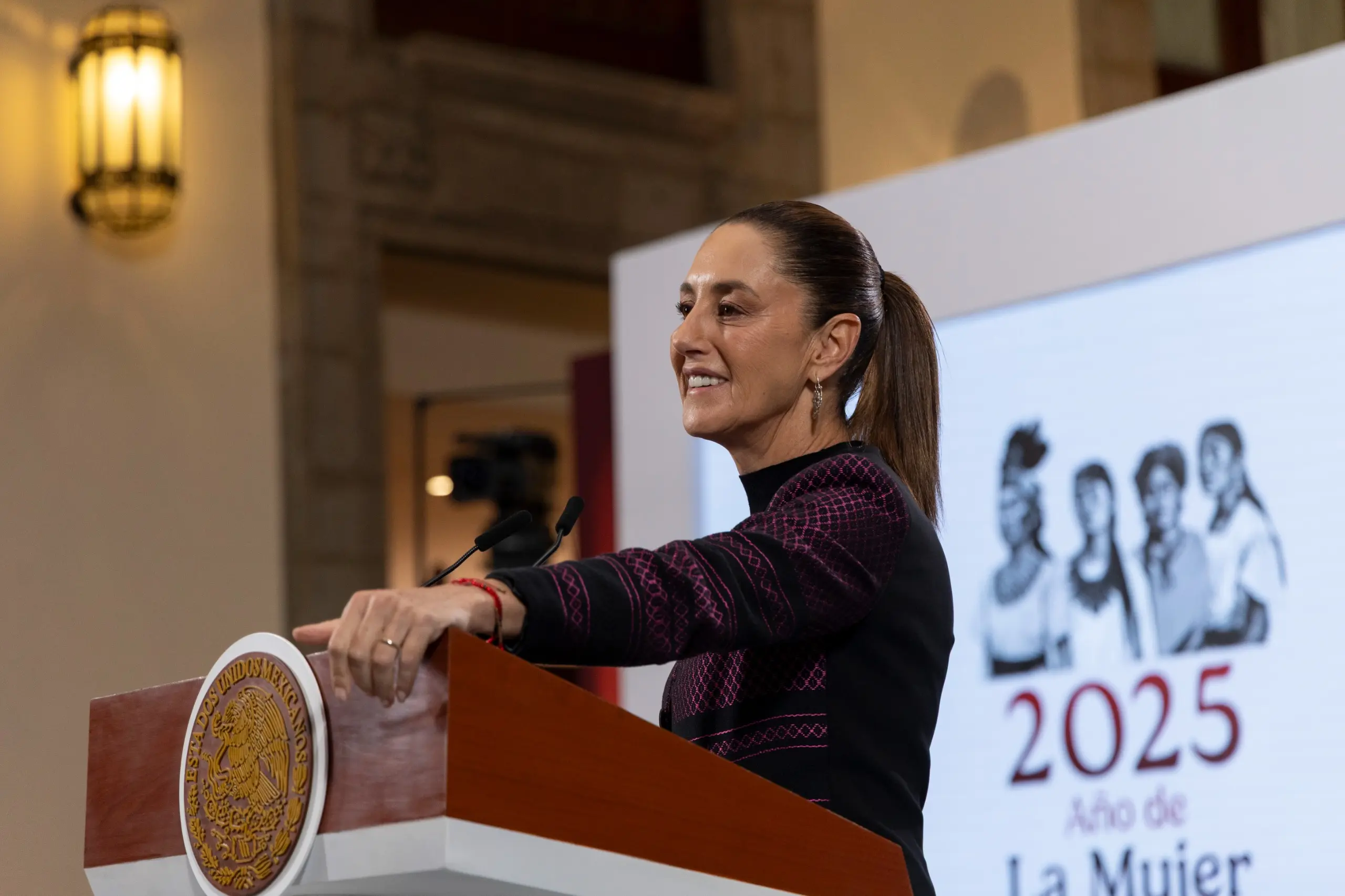
President Claudia Sheinbaum hailed what she described as the Spanish government’s “first step” toward “expressing regret for the injustice” committed against the indigenous peoples of Mexico during the colonial conquest.
At her October 31 morning press conference, Sheinbaum noted that Spain’s Foreign Minister, José Manuel Albares Bueno, delivered a speech in which he affirmed that it is appropriate “to lament the injustices” toward the Indigenous communities by the Spaniards upon their arrival in the Western hemisphere in 1521.
She indicated that “this is a first step and speaks to the importance of what we have always said: forgiveness ennobles governments and peoples.”
“It is not humiliating; on the contrary. Recognizing history, acknowledging the wrongs, asking forgiveness or expressing regret and reclaiming it as part of history ennobles governments and peoples. So congratulations on this first step by the Spanish government’s foreign minister, particularly in this Year of Indigenous Women,” she said.
Albares Bueno’s speech took place at the inauguration of the exhibition “Women in Indigenous Mexico” at the National Archaeological Museum in Madrid, which, Sheinbaum explained, is an effort “to make Mexico’s greatness visible in Spain.”
In his address, the Minister reflected on the close relationship between the two countries and said that their shared history “is very human, and like all human history, has black and white and shades of grey, and there has also been pain, pain and injustice toward the Indigenous peoples to whom this exhibition is dedicated. There was injustice, it is correct to recognize it today and it is correct to lament it, because that is also part of our shared history and we cannot neither deny it nor forget it.”
He also acknowledged “the welcome given by the Mexican people and by the government of Lázaro Cárdenas to Spanish exiles.”
The President also announced that as part of this exhibition, the book “Women of Maize and the Cosmos: Indigenous Art of Then and Now” will be published, and she shared the foreword she wrote for the volume:
“Mexico is land of deep roots. Its cultural greatness cannot be explained without the Indigenous civilizations that flourished long before the arrival of Europeans, and without the women who shaped those cultures: weavers of symbols, wisdoms and realities. This exhibition brings together the art of Indigenous women of yesterday and today: rulers, artisans, goddesses, creators, guardians of maize, of word, memory and greatness.
For millennia these women have woven their vision of the world into canvases, ceramics, codices, embroidery, songs and words. They speak 68 living languages, daughters of hundreds of generations who understood the cosmos as an interconnected whole. In their art is the balance between the human and the divine, life and death, earth and water, the visible and the invisible […]
Honoring this legacy implies recognizing the abuses of the past and the present. Discrimination, racism and contempt toward the Indigenous peoples still persist. Eradicating them is an ethical duty if we aspire to a truly just world, where all cultures, all languages, all people have equal value.
The world is a crucible of stories, colors, and voices. No one is above anyone else. This exhibition is a bridge of respect, dialogue and must also be one of recognition. May it serve to look with different eyes, listen with different ears and feel with an open heart.”
Finally, Sheinbaum referred to her inauguration as president —which she said did not include an invitation to Spain’s King Felipe VI, due to the letter sent by her predecessor Andrés Manuel López Obrador in 2021 calling for an apology for past wrongs. Sheinbaum said that she made that decision out of conviction and explained that the lack of response to the letter was “an affront to the people of Mexico”.
Related: Pan de Muerto: an Offering that Unites the Soul, the Earth, and the Flavor of Mexico